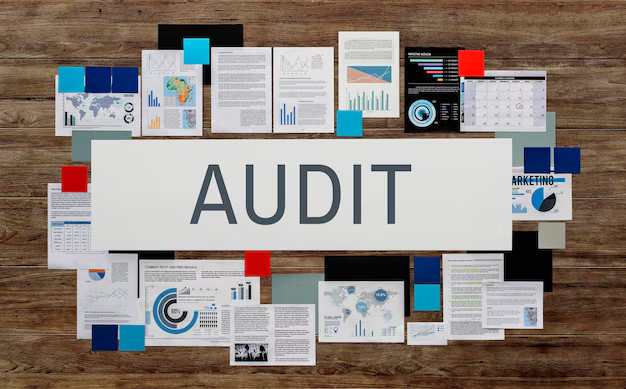
Financial vs. Compliance Audits: What’s the Difference and Why It Matters
In today’s complex regulatory and financial landscape, businesses must conduct audits to ensure transparency, accountability, and compliance with various laws and standards. However, not all audits serve the same purpose. Two of the most commonly confused types are financial audits and compliance audits. While both play a crucial role in assessing an organization’s financial health and regulatory adherence, they have distinct objectives, methodologies, and outcomes.
At Cruz Wise Consulting, we help businesses navigate these audits effectively, ensuring they meet regulatory requirements while maintaining financial integrity. In this article, we’ll break down the key differences between financial and compliance audits, why they matter, and how businesses can prepare for them.
What Is a Financial Audit?
A financial audit is an independent examination of an organization’s financial statements to ensure they are accurate, complete, and comply with accounting standards. The primary goal is to provide stakeholders such as investors, lenders, and regulatory bodies with assurance that the financial information presented is reliable.
Key Aspects of a Financial Audit:
- Conducted by independent auditors, typically external accounting firms.
- Evaluates financial statements (balance sheet, income statement, cash flow statement).
- Ensures compliance with accounting standards such as GAAP (Generally Accepted Accounting Principles) or IFRS (International Financial Reporting Standards).
- Identifies errors, misstatements, or potential fraud in financial reporting.
- Results in an audit opinion, which can be unqualified (clean), qualified (some issues), adverse (misstatements), or a disclaimer (insufficient evidence).
Why It Matters:
A financial audit provides credibility to an organization’s financial statements, making it easier to secure funding, attract investors, and maintain trust with stakeholders. Public companies, nonprofits, and many private businesses are required to undergo financial audits regularly.
What Is a Compliance Audit?
A compliance audit evaluates whether a company is adhering to external regulations, industry standards, or internal policies. These audits are often mandated by regulatory agencies to ensure businesses operate ethically and within the law.
Key Aspects of a Compliance Audit:
- Focuses on specific laws, regulations, or contractual obligations rather than overall financial health.
- Can be conducted by internal auditors, external firms, or government agencies.
- Examples include tax audits, healthcare compliance audits, Sarbanes-Oxley (SOX) audits, and environmental audits.
- May assess areas like data protection (GDPR, HIPAA), labor laws, and anti-money laundering (AML) compliance.
- Identifies gaps in compliance and recommends corrective actions to avoid legal penalties.
Why It Matters:
Failing a compliance audit can lead to severe consequences, including fines, legal action, reputational damage, and loss of business licenses. Regular compliance audits help businesses avoid these risks while fostering ethical operations and regulatory trust.
Financial vs. Compliance Audits: A Side-by-Side Comparison
| Feature | Financial Audit | Compliance Audit |
| Purpose | Verifies accuracy of financial statements | Ensures adherence to regulations and policies |
| Conducted by | External auditors (CPA firms) | Internal auditors, external consultants, or regulatory agencies |
| Focus | Financial health and accuracy | Legal, regulatory, and policy compliance |
| Standards Used | GAAP, IFRS, Auditing Standards | Industry regulations, government laws, internal policies |
| Outcome | Audit opinion on financial statements | Compliance report with findings and recommendations |
| Consequences of Non-Compliance | Loss of investor confidence, financial misstatements | Legal fines, penalties, operational restrictions |
How Businesses Can Prepare for These Audits
Preparing for a Financial Audit:
✅ Maintain accurate financial records and ensure transactions are properly documented.
✅ Conduct internal reviews before the external audit.
✅ Ensure compliance with accounting standards (GAAP, IFRS).
✅ Work closely with auditors and address any concerns proactively.
Preparing for a Compliance Audit:
✅ Stay updated on industry regulations and ensure policies align with them.
✅ Conduct regular internal audits to identify and fix compliance gaps.
✅ Train employees on regulatory requirements relevant to their roles.
✅ Keep detailed documentation and evidence of compliance efforts.
Final Thoughts
Both financial audits and compliance audits are essential for a business’s success and longevity. While financial audits build trust in financial reporting, compliance audits protect businesses from legal and regulatory risks. Understanding the differences and ensuring readiness for both helps organizations maintain credibility, avoid penalties, and operate efficiently.
At Cruzwise Consulting, we specialize in guiding businesses through both types of audits, offering expert advice and strategic solutions. If you need help preparing for an upcoming audit, reach out to our team today!
📩 Contact us to ensure your business stays audit-ready and compliant.








